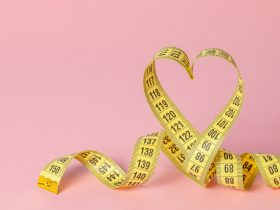Crohn’s disease is a chronic inflammatory bowel disease (IBD) that can affect any part of the digestive tract. It’s characterized by inflammation that can extend deep into the layers of the bowel tissue.
Crohn’s disease patients often experience unexplained weight loss. According to the National Institute of Diabetes and Digestive and Kidney Diseases, it’s a common symptom that can lead to other health issues.
Some people with Crohn’s disease lose weight because they avoid eating particular foods that can cause gastrointestinal irritation, while others lose weight because they experience a loss of appetite as a side effect of the medication they take or as a symptom of the inflammatory bowel disease (IBD) itself.
The Crohn’s and Colitis Foundation reports that Crohn’s disease patients, particularly those with small intestine inflammation, may have difficulty digesting food and absorbing its nutrients. If your large intestine is inflamed, you may have trouble absorbing water and electrolytes.
Dr. Shawn Khodadadian, a gastroenterologist at Manhattan Gastroenterology in New York and a board-certified physician nutrition specialist, says this can lead to malabsorption, another potential cause of weight loss. Unwanted weight loss should always be reported to a doctor so that the cause can be determined and treated.
The problems presented by Crohn’s disease-related weight loss
Dr. Khodadadian warns that rapid weight loss in those with Crohn’s disease poses a risk to the body not receiving enough of the nutrients it needs to function. A study published in the journal Nutrients in 2020 found that malnutrition affects 20–85% of patients with IBD. In order to keep a healthy weight and recover from stressful situations, the Crohn’s & Colitis Foundation recommends eating enough calories and nutrients, especially protein. The group recommends adding 250–500 calories each day and consulting a doctor if you’ve recently lost weight.
According to Khodadadian, how worried one should be about their weight loss depends on the amount lost, how quickly it happened, and the reason for the weight reduction. He mentions malnutrition’s effects on bone health, the immune system, wound healing, and infection rates. Extreme weight loss can lead to illness and even death.
Lose weight and get healthy if you have Crohn’s disease
The best way to get back to a healthy weight is to work closely with your doctor, who should check in on your Crohn’s disease on a regular basis and switch you to a new medication if the one you’re on isn’t doing the trick. Treatment that lowers disease activity and reduces inflammation can aid in recovery and set you on the road to weight gain, according to Khodadadian.
Some methods are presented to assist those with Crohn’s disease in remaining at a healthy weight.
Make smart dietary choices
According to the Crohn’s and Colitis Foundation, those who experience IBD symptoms should eat smaller, more frequent meals that are low in fat and grease. Vegetables and fruits that are easier to digest include asparagus, potatoes, applesauce, and melons, provided that they are cooked thoroughly. The group suggests eating only the juicy parts of fruits and discarding the skins and seeds.
According to the Crohn’s & Colitis Foundation, increasing your protein intake may be helpful during a flare or while you’re trying to recover from inflammation. They recommend consuming meats like beef and pork as well as eggs and fish like tuna, which are rich in omega-3 fatty acids.
Don’t assume anything right away
Because Crohn’s disease already places a lot of stress on your body, nutritionist and digestive health expert Karen Langston advises taking things slow as you seek to recover to a healthy body weight. There may be healing work going on, so “even if you’re taking in nutrients, the weight may not come back on right away.”
Maintain a food journal
Keeping a food journal that includes calorie counts and weight checks can help you figure out if your weight reduction is due to dietary changes. During a flare, it’s extremely crucial to keep track of your food intake. Khodadadian noted that it is crucial for people with Crohn’s disease to make sure they are getting enough calories and nutrients when inflammation is at its worst. You should drink more water and eat more frequent, smaller meals.
Coping with the psychological impact of Crohn’s disease and slimming down
Although Crohn’s disease mostly causes physical symptoms, it can also cause mental distress. Frank J. Sileo, Ph.D., a psychologist in Ridgewood, New Jersey, believes that many individuals don’t understand the disorder and make comments that are harsh or annoying as a result. As someone who suffers from Crohn’s disease himself, Dr. Sileo has heard it all. I went from saying, “You need to put some meat on your bones,” to saying, “I wish I had Crohn’s disease so I could lose weight.”
If someone makes a remark like that, “my approach is to educate and use humor,” as Sileo puts it. You can have diarrhea, joint pain, nausea, fever, and chills along with the weight loss, and I could say, Crohn’s illness is a constant hindrance. If somebody suggests your weight loss is due to stress or an eating disorder, he adds that you should explain that Crohn’s disease is a form of inflammatory bowel disease (IBD) that requires medical attention.
It could be beneficial to share your emotions with someone. Sileo suggests reaching out to the Crohn’s and Colitis Foundation to locate a local support group. As you go through the range of feelings that accompany Crohn’s disease, he recommends seeking the counsel of a mental health specialist with expertise in managing chronic illness.
Crohn’s Disease and its association with weight loss are complex issues that require careful consideration. With the right support, strategies, and a positive mindset, individuals with Crohn’s can manage their weight effectively and embrace life to the fullest.
















Find Us on Socials